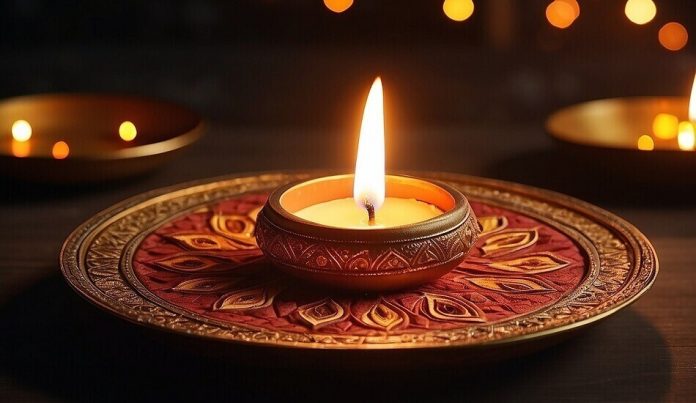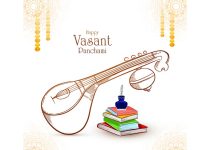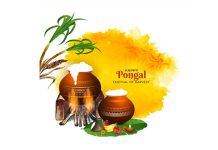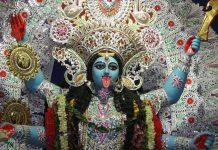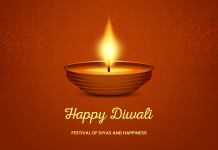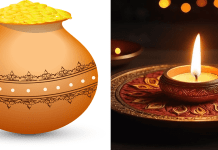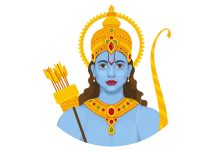Deepavali, also known as Diwali, is one of the most widely celebrated festivals in the Indian subcontinent and among communities worldwide. This festival, often referred to as the “Festival of Lights,” holds profound cultural significance, bringing communities together in a joyous celebration that transcends borders and religions. In this article, we will delve into the historical roots, cultural significance, and contemporary celebrations of Deepavali, exploring how the festival has evolved over centuries. the customs and rituals
The Essence of Deepavali:
Deepavali, also known as Diwali, derives its name from the Sanskrit words “deepa” (lamp or light) and “avali” (row). The festival symbolizes the victory of light over darkness, good over evil, and knowledge over ignorance. Celebrated by Hindus across the world, Deepavali marks the return of Lord Rama to Ayodhya after defeating the demon king Ravana. The people of Ayodhya lit lamps to welcome Rama, and this act has since become a central theme of the festival.
Historical Roots:
Deepavali finds its origins in ancient India, where it is rooted in various legends and religious beliefs. One of the most prominent stories associated with Deepavali is the return of Lord Rama to Ayodhya after defeating the demon king Ravana. The people of Ayodhya illuminated the entire city with oil lamps to welcome Rama, his wife Sita, and his loyal companion Lakshmana, marking the triumph of good over evil.
Another legend linked to Deepavali is the tale of Lord Krishna defeating the demon Narakasura, symbolizing the victory of righteousness over wickedness. These stories, along with several others, contribute to the rich tapestry of Deepavali’s cultural and religious significance.
Cultural Significance:
1. Symbolism of Light:
At its core, Deepavali is a celebration of light triumphing over darkness. The lighting of lamps and candles signifies the dispelling of ignorance and the victory of knowledge. This symbolism is not confined to religious contexts but extends to various aspects of life, emphasizing the importance of positivity, wisdom, and hope.
2. Renewal and New Beginnings:
Deepavali marks the beginning of the Hindu New Year in many regions. The festival is a time for individuals to reflect on the past year, make amends, and set new goals. The concept of inner purification and self-improvement is central to Deepavali, encouraging individuals to let go of negativity and embrace positive changes.
3. Family and Community Bonding:
Deepavali is a time when families come together to celebrate and strengthen their bonds. It is a time of joy, laughter, and shared traditions. Communities organize various events, including cultural programs, feasts, and fireworks, fostering a sense of unity and togetherness.
4. Diversity and Inclusivity:
While Deepavali has its roots in Hinduism, its celebration goes beyond religious boundaries. It is embraced by people of various faiths, reflecting the cultural diversity of the Indian subcontinent. The festival serves as a reminder of the importance of tolerance, understanding, and unity among different communities.
Contemporary Celebrations:
Deepavali celebrations have evolved over the years, blending traditional practices with modern trends. The following aspects highlight the contemporary nature of Deepavali festivities:
Cleaning and Decoration:
One of the integral customs leading up to Deepavali is the thorough cleaning and decorating of homes. The cleaning process, known as “pre-Diwali cleaning,” signifies the removal of negativity and the preparation of a clean, welcoming space for the goddess Lakshmi, the bringer of prosperity. Homes are adorned with colorful rangoli (decorative art created on the floor), vibrant flower arrangements, and traditional torans (door hangings) to create a festive ambiance.
Lighting of Lamps:
The lighting of lamps, diyas (small oil lamps), and candles is at the heart of Deepavali celebrations. Rows of lamps are placed inside and outside homes, symbolizing the dispelling of darkness and the triumph of light. The significance of this act extends beyond the physical realm, encouraging individuals to ignite the inner light of knowledge and goodness within themselves.
Puja and Prayer Ceremonies:
Central to Deepavali customs are the puja (prayer) ceremonies performed by families. The worship of Goddess Lakshmi is a common practice during this time, as she is believed to bring wealth and prosperity. Families gather in prayer rooms, beautifully decorated with flowers and incense, to offer their devotion and seek blessings for the coming year. The recitation of religious hymns and the exchange of heartfelt prayers create a spiritually charged atmosphere.
Exchanging Sweets and Gifts:
The exchange of sweets and gifts is a delightful aspect of Deepavali celebrations. Families and friends share traditional sweets like ladoos, jalebis, murukku, and gulab jamun and barfis as a symbol of sweetness and goodwill. The act of giving and receiving gifts fosters a sense of joy and camaraderie, reinforcing the idea of sharing prosperity and happiness with loved ones.
Firecrackers and Symbolic Rituals:
While the use of firecrackers has been a controversial aspect of Deepavali in recent years due to environmental concerns, it has historically been a significant part of the celebrations. The loud noises and bright lights are believed to ward off evil spirits. However, in response to environmental awareness, many individuals and communities are opting for eco-friendly celebrations, emphasizing the use of lights and decorations over fireworks.
Community Celebrations:
Deepavali is not just a family affair; it’s a time for communities to come together. Many neighborhoods organize cultural events, performances, and communal prayer sessions. Temples are adorned with lights, and the entire community participates in the festivities, transcending barriers and fostering a sense of unity.
Traditional Attire and Fashion:
Dressing in traditional attire is another cherished Deepavali tradition. Women often wear sarees or colorful lehengas, while men don kurta-pajamas or dhotis. The emphasis on traditional clothing adds to the festive spirit, with vibrant colors and intricate designs reflecting the cultural richness of the occasion.
The Five Days of Deepavali:
Deepavali is not confined to a single day but is celebrated over five days, each with its own significance. The festivities begin with Dhanteras, dedicated to the worship of wealth and prosperity. Naraka Chaturdashi follows, commemorating the victory of Lord Krishna over the demon Narakasura. The third day is the main Deepavali celebration, marked by puja, feasting, and lighting lamps. Govardhan Puja, which honors the lifting of the Govardhan Hill by Lord Krishna, is observed on the fourth day. The festival concludes with Bhai Dooj, a day dedicated to the bond between brothers and sisters.
Contemporary Influences and Global Celebrations:
In the modern era, Deepavali has not only retained its traditional roots but has also evolved with contemporary influences. In an increasingly interconnected world, the festival has gained recognition and popularity beyond its cultural origins. Major cities worldwide now host Deepavali celebrations, with cultural events, parades, and light displays. This global recognition underscores the festival’s universal message of hope, positivity, and the triumph of good over evil.
Environmental Awareness and Eco-Friendly Celebrations:
In recent years, there has been a growing awareness of the environmental impact of Deepavali celebrations, particularly concerning the use of firecrackers. Many individuals and communities are now opting for eco-friendly celebrations, emphasizing the use of LED lights, decorative materials from sustainable sources, and avoiding noise and air pollution. This shift reflects a collective effort to preserve the environment while continuing to honor the cultural traditions of Deepavali.
Deepavali Beyond Borders:
While Deepavali has its roots in Hindu traditions, its celebration goes beyond religious and cultural boundaries. In countries such as India, Nepal, Sri Lanka, Malaysia, and Singapore, Deepavali is a public holiday, and people of various faiths actively participate in the festivities. This inclusivity mirrors the multicultural fabric of these societies and serves as a testament to the festival’s ability to unite people from diverse backgrounds.
In Conclusion:
Deepavali, with its customs, rituals, and celebrations, encapsulates the essence of triumph over darkness and the pursuit of goodness. From the lighting of lamps to the exchange of gifts and the coming together of communities, every aspect of this festival is steeped in cultural richness and symbolism. As Deepavali continues to evolve in response to contemporary challenges and global awareness, its core message of light, unity, and the victory of good over evil remains timeless, resonating with millions who celebrate this Festival of Lights with joy and reverence.


























